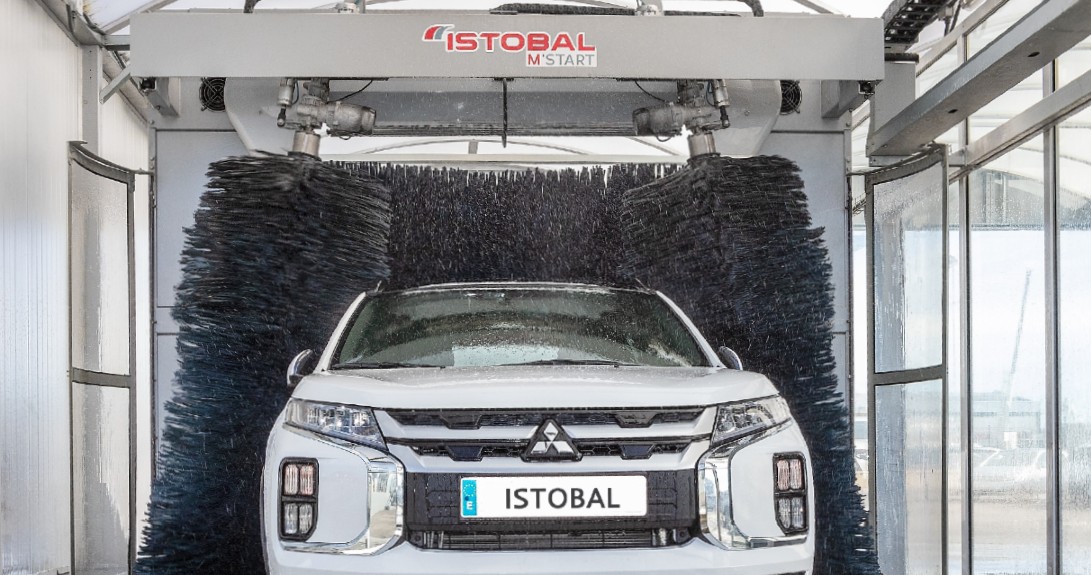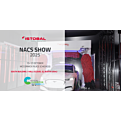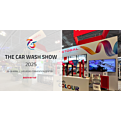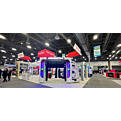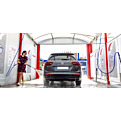ISTOBAL makes it possible for vehicle wash facilities to operate in times of drought, thanks to its environmentally friendly technologies.
The company is a pioneer in the development of sustainable solutions to reduce water and energy consumption, in addition to minimising environmental impact, in its commitment to promoting sustainability in the sector, reducing water consumption and making the activity of vehicle wash facilities compatible with water restrictions arising from periods of drought.
Currently, countries such as New Zealand, Australia, the Netherlands, some regions of France and Spain, as well as Poland, among others, suffer from water shortages and, in some cases, have water regulations and restrictions that affect the car wash sector, to the point of preventing them from operating if they do not have recycling and reuse systems, as in the case of New Zealand.
In this regard, the company highlights the importance of introducing water recycling and treatment solutions to encourage the responsible use of water in the facilities and to be able to continue with the activity when such restrictions are imposed.
In this respect, ISTOBAL stresses the importance of using recycling systems as they reuse up to 80% of the water used in each wash. An innovative solution from the company that saves an average of 128 litres of water per complete programme in rollovers and more than 1,800,000 litres of water per year. If this water was not reused, it would be like letting a tap run for 106 days. In addition, with the new models of recycling systems, the contamination levels of the water resulting from the wash process is greatly reduced and the risk of legionella in the wash facilities is prevented.
ISTOBAL recalls that another fundamental point when treating water from washing vehicles is to have a system for treating hydrocarbons in the collection of this water prior to it being disposed of or reused. ISTOBAL hydrocarbon separators are class I, and achieve a 94% reduction in the presence of hydrocarbons in water treated, therefore retaining traces from fuel and vehicle engines. As the company adds, 1 drop of oil is capable of converting 25 litres of drinking water into non-drinking water. Therefore, authorities in different countries insist on the importance of reducing these contamination levels by avoiding cleaning vehicles in non-designated areas, to the point, as in the case of Spain, of imposing fines for washing vehicles in the street.
Among its wide range of water treatment solutions, ISTOBAL also has demineralising and decalcifying equipment and specific filters (iron removers, silex and active carbon) that make it possible to obtain quality water for washing vehicles, even using water other than mains water, such as water from wells or lakes. It also has biocide dosing systems to disinfect any type of water and prevent the growth of fungi and bacteria in the water stored in the tanks.
Other innovative solutions for lower water consumption
The Spanish group promotes environmentally friendly vehicle wash facilities also with innovative wash equipment that consumes less water and energy.
Its latest innovations reduce water consumption in automatic industrial wash equipment by 45%, thanks to the increase in water pressure in the most critical consumption phase.
The incorporation of new materials in brushes that absorb less water, together with a better redistribution of the water circulation circuit, among other technologies, has meant a 40% reduction in the water used in its state-of-the-art rollovers.
In addition, it has managed to reduce water consumption by 33% in wash centres that operate at low pressure and low flow in certain programmes, without affecting the effectiveness and quality of the wash.
The Spanish group insists on the responsible consumption of water when washing vehicles. Remember that cleaning the car in a sustainable wash facility that incorporates water treatment solutions generates less water consumption compared to a manual wash with an individual hose and avoids water contamination resulting from the wash process.






